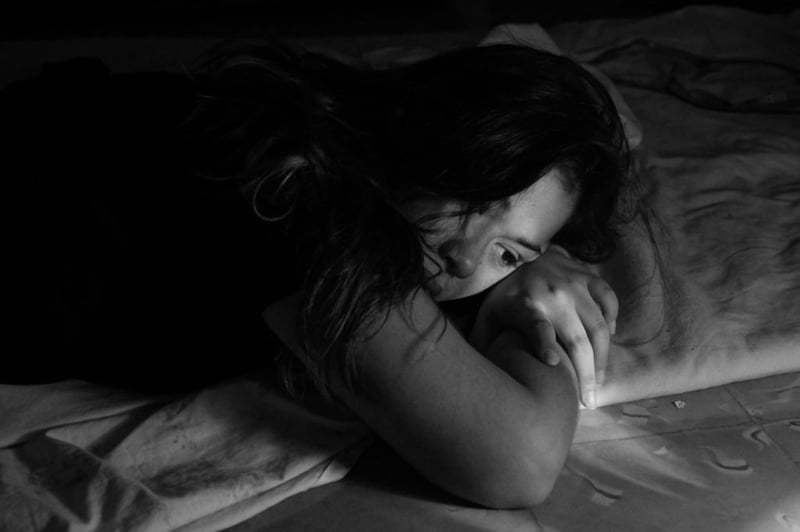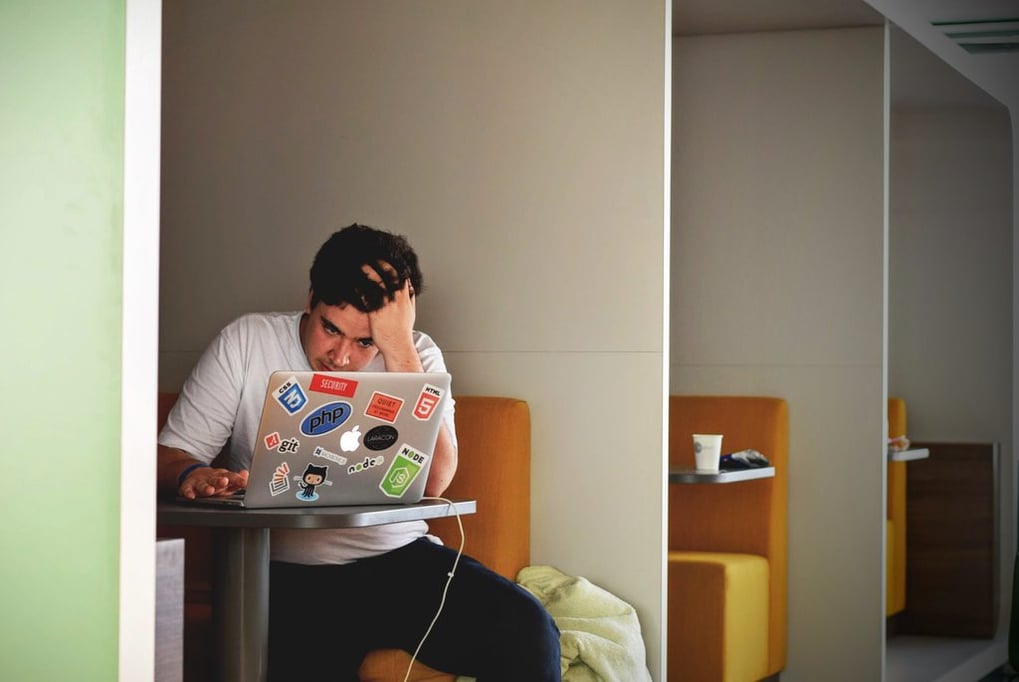I can see the light, finally
WE TALK TO FOUR HOXBIES ABOUT THE DARK PLACES DEPRESSION HAS TAKEN THEM TO AND HOW LIFE WITH THE COLLECTIVE HAS FORMED A VITAL PART OF THEIR CONTINUED RECOVERY.
As part of Mental Health Awareness Week, we talk to four Hoxbies about the dark places depression has taken them to and how life with the Collective has formed a vital part of their continued recovery.
Tell us a little bit about your mental health problem?
Katy Kurn: I was officially diagnosed with anxiety and depression in my mid-20s but really I think I could date it back to my childhood.
Amy Pay: I suffer from anxiety and bouts of depression, both of which really took hold when I was about 17, which was 10 years ago.
Helen Barnes: A lot my depression now is anxiety driven. I’m out of the post-natal depression and now it’s more about managing my anxiety. I’ve been in therapy for three years now and it’s taken that long to realise that the anxiety was always there. It was just then compounded horrifically by the post-natal depression.
Matthew Fearon: My experience is actually quite similar to Helen’s. I suffered from latent depression in my 20s that was only truly brought to light when I struck by paternal post-natal depression. The depression, I call it the unplugging of my soul, still lingers but it comes now only in waves; my post-natal depression felt endless.

How did or does your mental health problem affect you?
Katy: For quite a long time I let it define me. I let it swallow me up and I used it as something to hide behind, to stop me making decisions that would better my life. Over the years I have sunk to the lowest of lows. I had undetected post-natal depression, I could list for hours all that I have suffered.
Amy: At my most unwell, I lost all interest in everything. From a work perspective, some days I just literally couldn’t make it into the office because I was so consumed by anxiety.
Helen: Throughout my pregnancy, my post-natal depression and the medication I was on just numbed me, I was left completely disconnected from experiencing anything. Then when Jack was born, I was terrified. I was then on different drugs and they made me so numb that I just couldn’t express anything and I couldn’t talk about anything because I just didn’t feel anything.
Matthew: My post-natal depression left me stranded and alone within my new family. I clung on for dear life but frequently my grip would loosen. The longer my silence went on the more my PND distorted reality; I wondered how any man survived fatherhood if this was how it felt. Alongside the darkness, in my mind every flaw and every failing - real or otherwise (it turns out mostly otherwise) - was exposed, magnified and feasted on by my depression.
How did you manage your mental health condition while working at a ‘proper’ job?
Katy: I built this wall of fake confidence, of being fine, of working 12-hour days. It was a barrier between me and my anxiety and me and my colleagues.
Amy: Employment was really difficult for me because I think you need to have a boss or an employer who is really understanding of issues around mental health in order to thrive and get the most out of your job and bring the most to your job. There is no room for self-discovery in a ‘proper’ job. I found it very suffocating.
Helen: I just shut down completely and utterly mentally and just got on with it. I blocked out my parents, I blocked out my friends at times and I just got on with it. I don’t remember consciously doing that at the time, it was just the way I coped with the way my life was.
Matthew: To be honest, I spent a lot of time hiding in toilets. Sometimes holding back tears, sometimes trying to cling to perspective, sometimes just hiding. I worked in a newsroom where I was rarely not on deadline, in terms of day-to-day functioning the adrenaline of that got me through. It was when the adrenaline faded that danger lurked.

What was the reaction when you told people about your mental health problem?
Katy: It always surprised people, when I felt brave enough to tell them. Their reaction would always be, ‘But you can’t have that, you’re so strong.’ It goes back to that wall I talked about. No one could see that I was crumbling behind it. The more I built it up the harder it was to be open.
After I had been signed off for a little while more and more people found out, that was the hardest thing, that people didn’t expect of me, that they thought I was the strongest person around. That almost made me feel worse, it started off a train of thought that perhaps they’re right and that I shouldn’t, or couldn’t, have this. People made me feel like it was a choice.
Amy: My employer tried but it just never worked. On the days I couldn’t make it into the office I could do a whole day of work at home and then some. I always produced really good results but there were some days when things were just a bit off and I’d need quiet time or need to take myself aside to phone supportive people. Unfortunately, the environment there wasn’t very flexible.
My family have been brilliant at supporting me, but so much comes from being able to stand on your own two feet. Independence gives me the strength to stand up to things.
Helen: Part of the problem was that I stayed silent for so long but I have had an amazing support network around me. That was part of the problem when I moved to New York, moving so far away from all of that. But ultimately it was the New York crash during our first Christmas there that got me to the position of happiness that I am in today.
Matthew: When I finally reached breaking point and told my employer they were incredible. They gave me support but also the space to recover. My decision to not return was always more about what I wanted from life as opposed to escaping an oppressive situation. In terms of talking about it to those closest to me, I’m still needing to heed my own lessons about opening up and not giving my depression silence to feed on.

How has life as a Hoxby helped you cope with your condition?
Katy: I must admit when I first joined Hoxby that horrible little voice appeared. I was reading through all the channels on Slack thinking everyone was so much cleverer than me and that little voice was telling me that I wasn’t good enough and that I was going to fail. But I was determined, Hoxby didn’t feel like that sort of place - and that was me telling me that.
I have my own coping mechanisms. I know now when I need to take a break and disengage from work. And that is the great thing about Hoxby. I’ve had a couple of days recently when everything just got too much and I have the beauty now that I can put work to one side for the day and take care of myself. It stops me building that wall up.
Right from the start of been able to be really open about who I am and what I have been through and I’ve never felt anything other than respected and that’s a very different feeling for me. And the more you get that, the more you trust and the more you do feel like you can be yourself.
Amy: Hoxby matches my outlook on life, as grand as that sounds. I believe that by working when you want to work, you can be most productive. If your heart’s not it, you’re not going to be able to do a great job; you will just churn something out and that’s it. The flexibility really appealed, as well as the nature of it and the type of the work. I really enjoy working as a group but I also enjoy having personal integrity and knowing that what I do is being valued, so Hoxby fits in really well with that. The more you can drown out the negative thoughts with positive influences and the more you can release that negativity out of your head through open and honest conversations, the easier it is to restore the balance so that you’re able to work much more productively and effectively. Having that network in place really helps to keep yourself in check.
Helen: Two years in now with Hoxby and I think that in the last six months the benefit of that, and the benefit of my therapist and the benefit of my medication has all got me to the point where I can see crashes coming but I can cope with them and I can handle them.
I need to work but I need to work in an environment where I can do the things I want to. If I’ve got an event on Friday morning I can just go and not have to tell anyone; I see my therapist every Wednesday and I don’t have to make excuses or factor that into office life; I don’t have to go for a job interview and say, ‘oh, by the way I never work on Wednesday mornings because I see my therapist.
We’re moving back to England this summer and the fact that I can take the whole of July off and it not be an issue is the biggest benefit of all. The stress of trying to work and getting us all back to England and getting Jack settled in a house that he doesn’t remember, moving into a whole new different school.
The flexibility that I can have in handling that is just incredible. If I had had a proper job I would have just quit. Now I’m coming home and I going to continue to be a Hoxby and that fills me with not one jot of anxiety. I can see the light finally, I feel secure that even if it gets bad again it will be okay.
Matthew: I still suffer bouts of depression but these days it is closer to an unwanted guest that stays too long rather than a squatter who looks like never leaving. No matter how dark it gets, experience has conditioned me to keep a light on within my brain that reminds me that this darkness is a fiction and that this too shall pass.
This is also where being a Hoxby has provided an extra shield. I describe my bouts as ‘the unplugging of my soul’. I am getting better at charting ‘unpluggings’ (normally after a period of irrational exultant high) but mostly they are unpredictable. When I had a ‘proper’ job and my soul unplugged I had to hide in a toilet cubicle curled up on the floor on a level far from my desk quietly weeping hoping no one would find me.
Now because I work from home, or occasionally a co-working space, I don’t have to hide nor do I have to panic about being caught unplugged. In fact I am convinced that both factors help keep the darkness at bay. I went to see my doctor last week and she things the same.
If you are concerned that you are developing a mental health problem you should seek the advice and support of your GP as a matter of priority. If you or anyone you know has been affected by any of the issues raised by this article, you are not alone. Below are details on services that offer help and support directly to people with mental health problems:
- The Samaritans offer emotional support 24 hours a day – in full confidence. Call 116 123 – it’s FREE or email jo@samaritans.org.uk
- Call the Mind infoline on 0300 123 3393 (UK landline calls are charged at local rates, and charges from mobile phones will vary considerably). Or email info@mind.org.uk.
